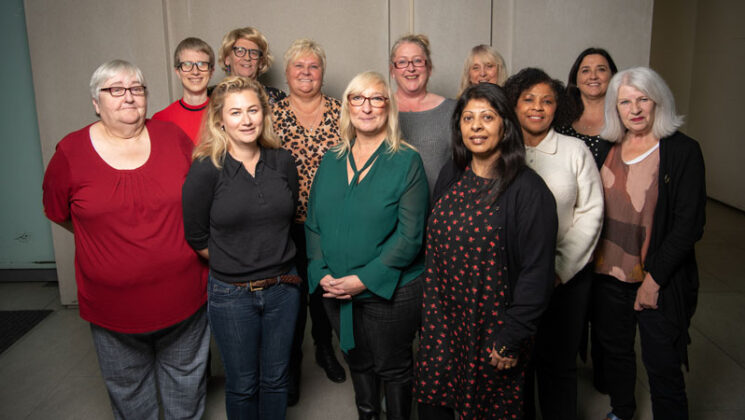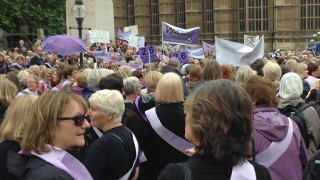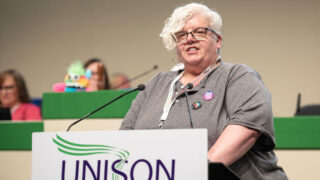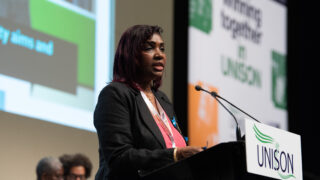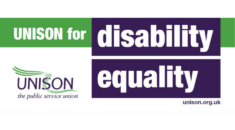Around three-quarters of UNISON members are women, working hard in jobs that keep the UK running. UNISON is committed to ensuring they get the support they need to have their voices heard and access leadership positions at all levels of the union.
To that end, UNISON’s equalities unit has launched a project to increase the participation of low-paid women members in care homes, schools and other smaller workplaces. As part of that project, in early October a group of care workers, cleaners, domestics, librarians and administrators met at UNISON centre to share their experiences.
Chair of the Belfast education branch committee and one of the recent recruits to UNISON’s national executive council (NEC), Catherine McKenna (below) has been a UNISON member for 14 years. In that time, she’s climbed from the very bottom to the top of the union.

Catherine became a member while working as a catering assistant in a school in Belfast. “I first joined UNISON because I was told I was joining, by some very strong women in my workplace,” she says, smiling. “I ended up getting active when I faced harassment at work and a local organiser helped me out. After that, I became more involved. Getting a seat on the NEC this year was a huge thing for me.”
The situation for women in Northern Ireland is “shocking” she says. “And all of the women who are local organisers, regional organisers and leaders really inspire me. We’re all on the same page. I’d love to see more women in the education sector come forward to take up leadership positions.”
Her advice to women who are interested in getting more involved is: “Just go for it. Whenever you have a successful campaign or outcome for a disciplinary, it’s the best feeling in the world that you helped someone.
“And there’s plenty of training available to help you… You’re never going to be left on your own because there’s always someone to help you.”
It’s this spirit of solidarity that Catherine loves about UNISON. Her proudest UNISON moments include the health strike in 2019, where nurses protested over pay and staffing. “I wasn’t directly involved, but the whole region came out to support them. From bus drivers to catering assistants, we all showed solidarity.”
More recently, Catherine worked with the education authority in Northern Ireland to develop the COVID-19 back to schools guidance, and describes the importance of adding her voice to that debate. “The people writing the guidance weren’t driving the buses or preparing the school meals, so it was vitally important that we were listened to and respected.
“It’s been a battle, and frustrating to see the different treatment they gave certain workers, even when we were all at equal risk of catching COVID-19. For example, one school leader decided during lockdown that cleaners should go into school, when they shouldn’t have been leaving their houses. I spoke out, because I just wanted them to have a bit of common sense.”

THE willingness to speak out for others is a common characteristic among UNISON’s strongest women.
Maria Alberts (above) is UNISON regional chair of welfare and joint branch secretary for Gateshead health branch. She’s been involved in the union for almost three decades, having become a rep when she stood up for a colleague at work.
“I was working in mental health and there was someone who had an issue with a manager. I spoke up for them, and someone from the UNISON branch asked if I wanted to become a rep.
“At the time, I didn’t even know what a branch meeting was. But I became a rep, and I love what I do to fight for people’s cases. I get a buzz when I win a case, because I just like to see people getting on.”
She continues: “As a UNISON rep you can really make a difference to somebody’s life. Once, in the hospital I work at, someone had an accident in the laundry room. The management said it wasn’t the workplace’s fault, so I went around taking pictures of the workplace and the room and presented them to the court as a witness. The member won £120,000 in compensation – that’s the highest amount you can get. I was so proud.
“There was another member who’d worked in the hospital for 35 years and their eyesight had deteriorated to the point of preventing them from being able to do their job. They were due to retire at the end of the year, so I helped strike a deal where they could stay off work and still get their wage for that year before retiring.”
Beyond individual casework, Maria has been at the heart of some impressive collective action with her branch. Most recently, she campaigned for a pay rise for subcontracted hospital staff, who are now earning above the living wage. “We got the staff’s wages up from £9.40 an hour to £9.78, and at the beginning of 2022 it’s going up to £10 an hour. We managed to win this with a lot of teamwork. We’re there to help each other.”
The help Maria describes extends beyond the branch and to the whole Northern region. “I’ve been involved so long it feels like a family. We share our experiences and our wins, and we can always pick up the phone and ask questions of each other to see how people are resolving issues in their area. Being in UNISON means being in a huge network of people with experience.”
Maria concludes: “If I can do it, anyone can do it. If you’re looking to get more involved in your workplace, then shadow a UNISON rep and find out what it’s about.”
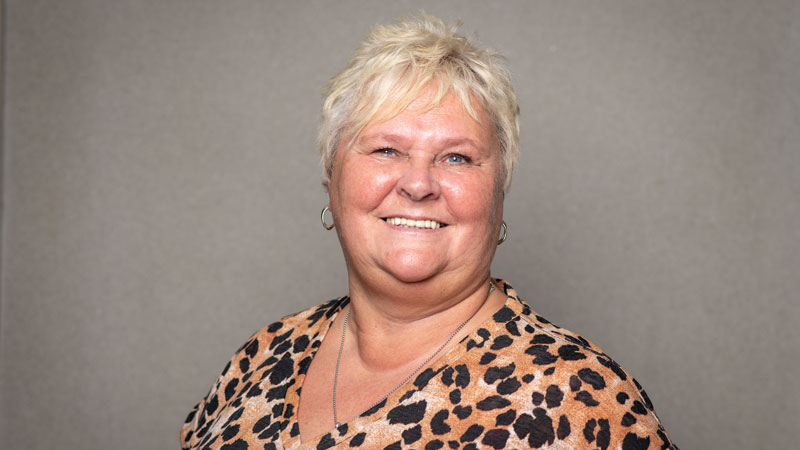
IT WAS a workplace dispute that first drew Janet Green (above) into more active involvement in UNISON. Years later, she is not just branch secretary for South Tyneside branch, but sits on the local government service group executive, and is a member of the National Joint Council (NJC), the negotiating body for pay and conditions in local government and schools.
“I started working as a local authority cleaner back in 2006, and joined the union automatically,” she recalls. “I started off in schools and then joined the specialist cleaning team that went and did all the horrible, dirty jobs. I was dead on my feet, leaving home at 5:30 in the morning, not getting home until 6:30 in the evening. In 2012, all our wages were cut, through the single status job evaluation scheme.
“We were a team of six women and we all knew that we were worth more, so we fought for it. I did my reps training and went on to become the branch women’s officer. At the time, the regional organiser told us that there was nothing more they could do for us, in case the local refuse crew’s wages were brought down to our level. That lit a fire in my belly that said, ‘This isn’t right’.
“In a four-year campaign where there were more knocks than lifts, our determination kept us together. We were six women and we kept each other strong, meeting in lunch breaks and after work. We rewrote the job descriptions and, when they were re-evaluated, they no longer compared it to anyone else’s position and lifted our wages.”
Janet’s other proudest accomplishment was working alongside the Living Wage Foundation to win the living wage for the whole of the local authority, which employs 4,000 people.
Describing her motivation, she says: “The living wage isn’t just about what you’re paid for work, it’s about having the choice to work a bit less and be able to spend more time with your family. I remember I was working 50 hours a week as the sole breadwinner for my household, because my husband had an accident at work and was stuck at home.”
Janet says she’d like to see more cleaners in leadership positions across UNISON, as they’re the invisible workforce within almost all workplaces. “Without cleaners, there wouldn’t be anything else. We go in to make sure everyone is able to work in the buildings, we work either in the early mornings or when everyone’s gone home.
“I’d love to see more cleaners come forward, from all areas. Speak to your local rep or branch, and trust that the union will help you find your voice and support you.”
UNISON general secretary Christina McAnea says: “These incredible workplace wins and campaigns, by incredible women, show the very best of our union. What’s most striking is that their courage to fight for what’s right came from the solidarity shown by other women in UNISON.
“This is exactly what we mean by the collective power of a union. And as UNISON is the largest women’s organisation in the country, with one million women members, we have the right to always challenge the idea that women who work in low-paid jobs are low-skilled or of low value.
“I’m so proud that UNISON works day in, day out, to get our amazing members the pay, terms and conditions that reflect the vital work they do.”
UNISON’s service group elections will be held this year, with the ballot opening on 28 April. Some of the seats are reserved for women and low-paid members, so it’s an ideal opportunity to get involved, whatever your background.
Details will be made available at: www.unison.org.uk/about/our-organisation/lay-structure-democracy-and-elections/ so keep an eye out.
Images: Steve Forrest

